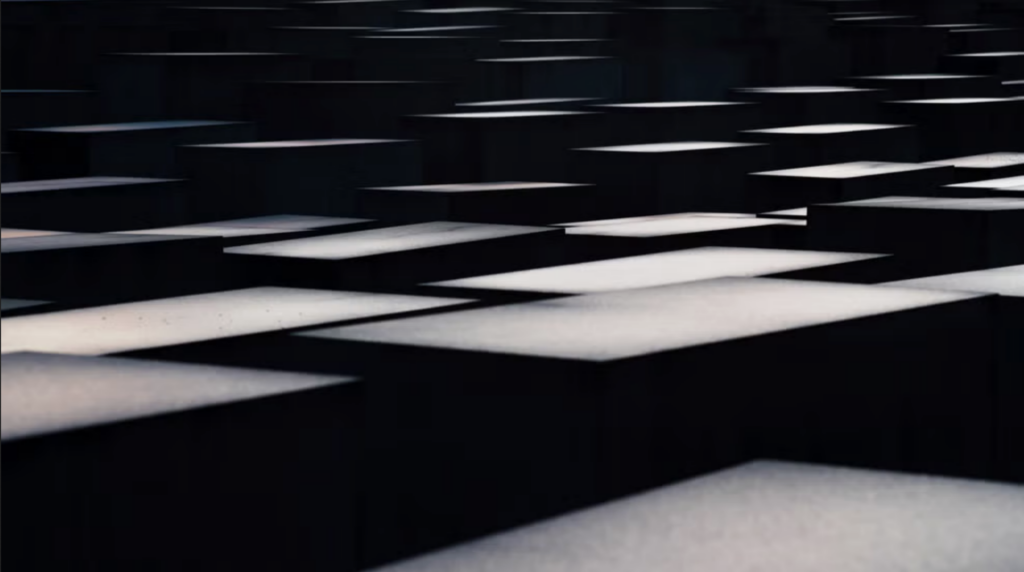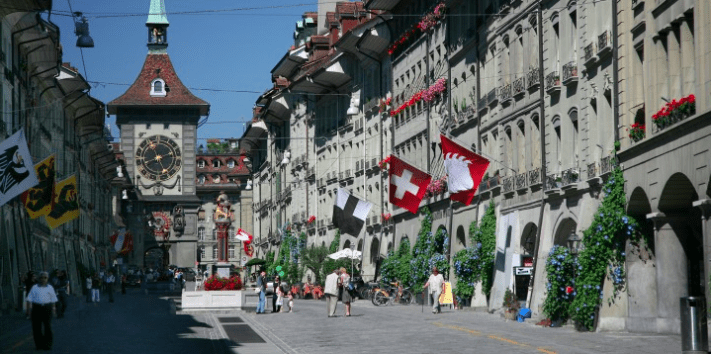Our Advisory Board Member Chief Rabbi Binyomin Jacobs (NL) statement after the main group of protestant churches in holland made a statement apologising for their treatment of jews through the ages and during the war.
On Sunday 8 November, the PKN, the union of Protestant Churches in the Netherlands, put forward an official apology for antisemitism throughout the ages and especially for their position during the Shoah (Holocaust).
In a live interview on Dutch Television last night, EJA Advisory Board Member, Rabbinical Centre of Europe Director of interfaith relations and Chief Rabbi of the Netherlands Binyomin Jacobs gave his response.
Extracts of his comments are below:
“It is commendable that the current church leadership admit wholeheartedly and in no uncertain terms that the Church as an institution could and should have done more. I am grateful for that recognition, that statement is important. But I want to make it clear for my part that I don’t blame the current Church leaders, because they have done nothing wrong.
They are from after the war, nothing can be blamed for them. They did not send my family to the gas-chambers, they did not even watch.
When I was asked by the PKN to attend the official celebration of 500 years of the Reformation on October 31, 2017, I initially refused to accept that invitation. I declined to attend a meeting where a notorious anti-Semite would be honoured.
Of course, the scribe today cannot help the fact that his great-great-grandfather held Luther’s erroneous theology towards the Jews of paramount importance as a Christian. In fact, he completely disagreed with the anti-Semitic statements of the great Christian master.
But how can I, as a Jew, join the celebration? “Show that you renounce his anti-Semitic statements, exclaim that you find that unacceptable,” I said to my friend Rev. de Reuver. He agreed wholeheartedly. Twice at that meeting, in the presence of our Lord, they publicly distanced themselves from the anti-Semitic writings and statements.
Fifty years after the war, I was confronted with a tidal wave of monuments commemorating murdered Jews. Disclosure after disclosure. I remember asking a young mayor at the beginning of that period: why only now? Had it not been noted earlier that fellow Jewish citizens had not returned? And his answer has always stayed with me: “My predecessor did not want to be reminded of 1940 -45.That period did not suit him, those years had to be covered up as much as possible.
Within that framework I see this statement. I am deeply grateful to the heroes who saved the lives of my mother and many others without any form of profit, free of charge, at great risk to their own lives. I think of Rev. Overduin, Rev. Slomp, Rev. Koopmans, Rev. Buskes, and I also think of Mgr. de Jong.
And I am certainly thinking of resistance fighters who were arrested by cowardly betrayal before they could have done anything. No one has heard of them, they were brutally eliminated for refusing to watch. Above all, let us never forget them and keep commemorating them, despite their anonymity.
But at the same time we know that far too little was done in the war, that the churches certainly also kept silent too much and that “over the centuries the church helped prepare the breeding ground on which the seeds of anti-Semitism and hatred could grow”, as was reflected in the statement. For centuries Jews were dismissed as G-d killers who would receive their just deserts.
And it was good that the period after the war was also mentioned. My grandparents made every effort to take in their nieces and nephews whose parents had been murdered. To keep them for Judaism, as their parents would have liked. Driven by their faith, these ‘parents’, who had saved their lives completely selflessly, refused to return their Jewish children in hiding to where they should be. Many of these orphans are still suffering from the identity crisis afflicted them, the result of an unhealthy and unacceptable urge to convert.
The Christian Churches have put a line behind the past with their confession and recognition. But, more importantly to me, it has been clearly stated that they intend to fight with us against contemporary anti-Semitism.
In the time of the Crusades we had the wrong faith and entire Jewish congregations were exterminated by the crusaders. In the Middle Ages we were the virus that caused the plague and so we had to be exterminated, my dear parents were of the wrong race. And I am a Zionist! Of course there can be criticism of Israel’s government policy, half Israel is against Netanyahu, just as not every Dutchman is for Rutte (I am!). But anti-Zionism is committed to the destruction of the State of Israel, the extermination of the Jewish people. Anti-Zionism is anti-Semitism.
Daily through the ages, we offer our prayers towards Jerusalem. Jerusalem, where today all religions in the world are allowed to live their religion in freedom, is inextricably linked with the Jewish people, with the survivors of 1940-45, with me.
Churches: leave politics to politicians. Recognize the mutated virus that has destroyed millions and millions of my people over the centuries and is now called anti-Zionism.
The PKN of today should not have had to explain the mea-culpa for me, the past is over. But the link so clearly drawn from the persecution of the Jews through the ages and the passive attitude of the majority of the churches when my family was taken away never to return, that link to the now and to the future, the intention to develop Judeo-Christian relations into a deep friendship, in which everyone can remain himself and therefore no attempts are made to convert, to want to be connected in the fight against contemporary anti-Semitism, that purpose, that statement makes me deeply grateful. The words of the statement, of the Christian churches, were good. I have hope yes, but expectation too.”













